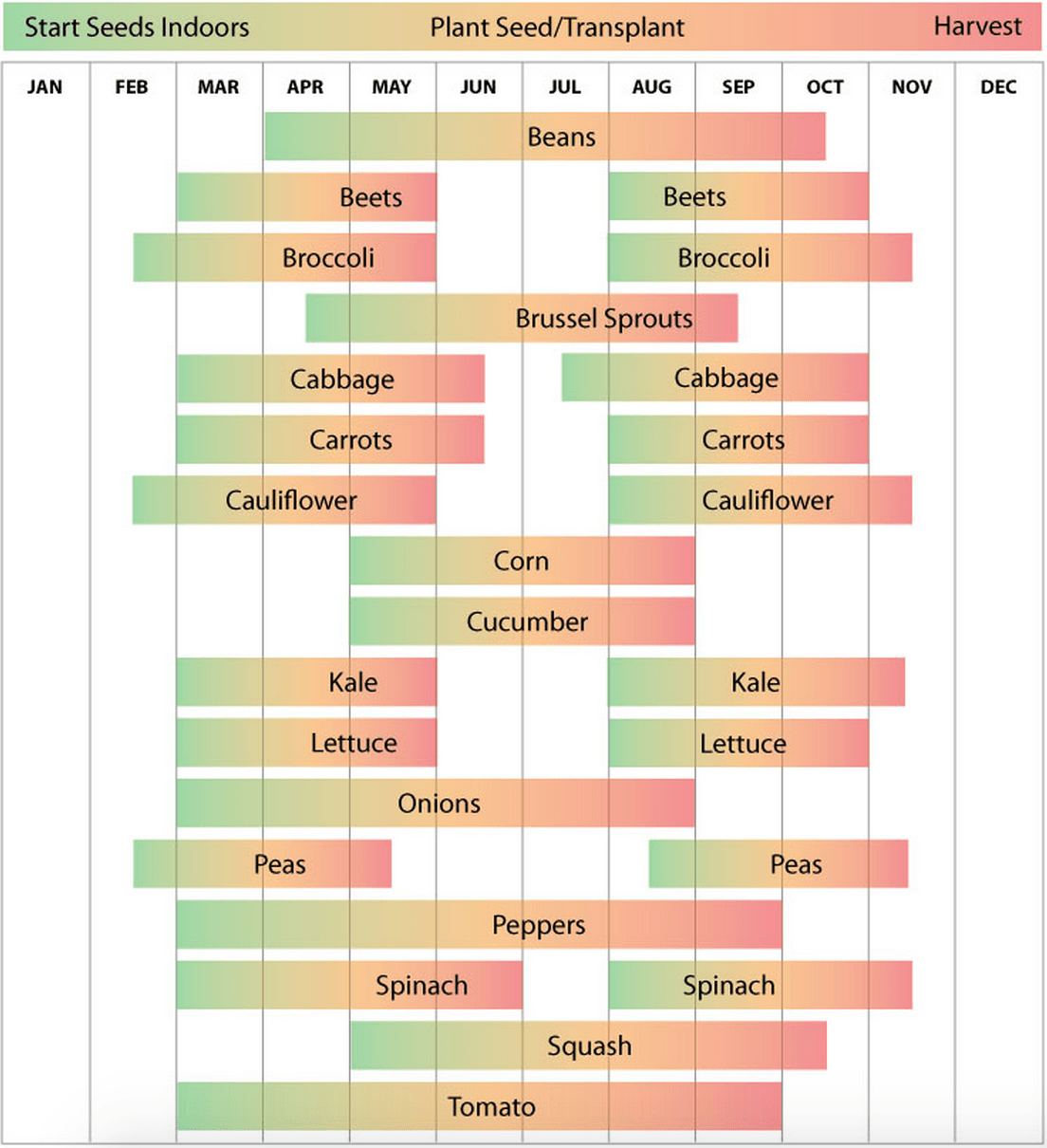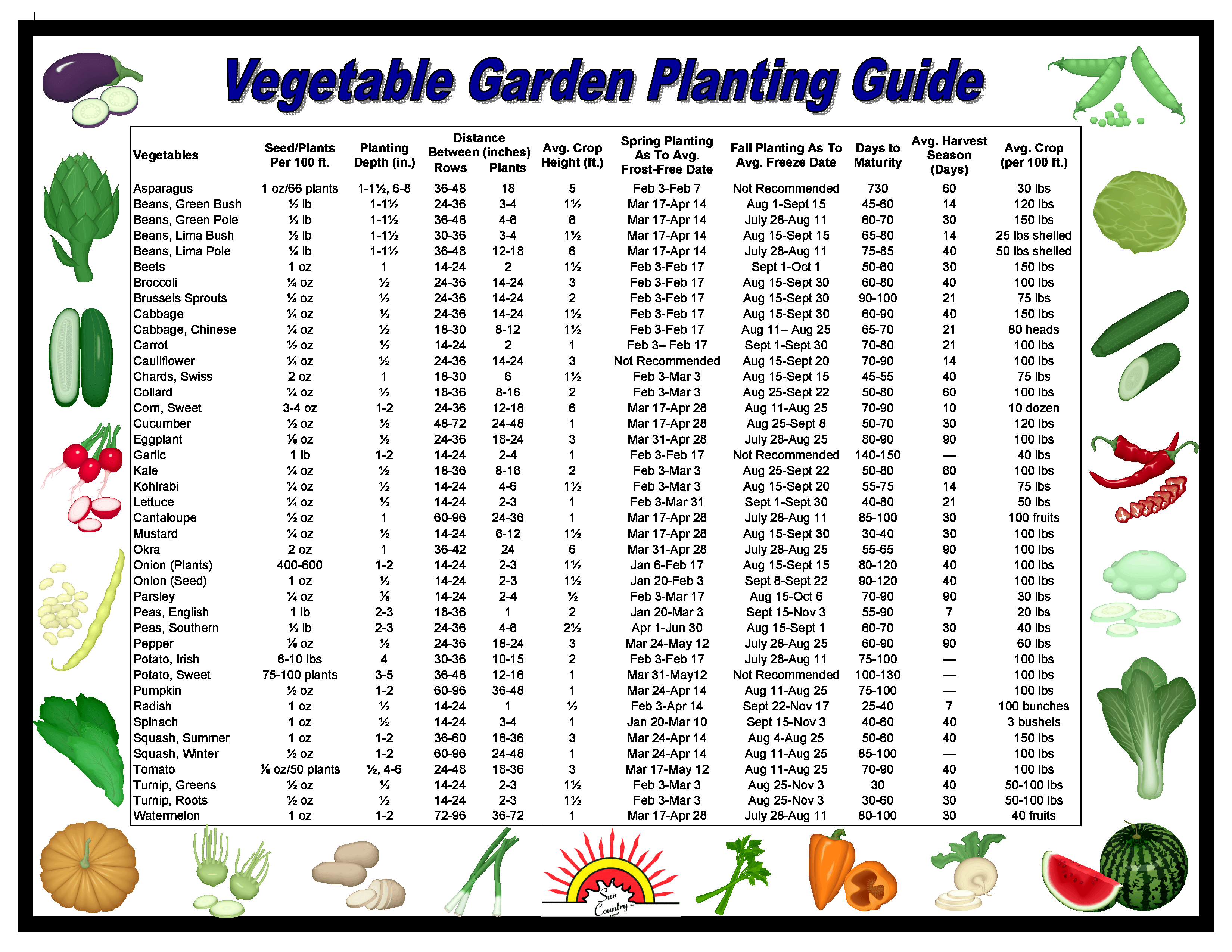The urge to sow seeds and nurture tiny seedlings into bountiful harvests is a familiar itch for any gardener. But the question that often lingers is: when exactly is the right time to plant vegetable seeds? The answer, like the best heirloom tomatoes, is nuanced and depends on a complex interplay of factors.
Successfully starting vegetables from seed isn't just about throwing seeds in the dirt and hoping for the best. It’s about understanding the delicate balance between providing the right conditions for germination and aligning with the natural rhythms of the growing season. Getting the timing right is crucial for maximizing your yield and enjoying a healthy, vibrant vegetable garden.
The primary factor influencing seed starting time is your last expected frost date. This date marks the approximate time when the danger of frost has passed in your area, allowing tender seedlings to thrive outdoors. Determining your last frost date is as easy as a quick online search or consulting with your local gardening center. Different vegetables have different frost tolerances, so understanding these individual needs is essential.
Beyond the last frost date, factors like your specific climate, the type of vegetable you’re growing, and whether you’re starting seeds indoors or directly sowing them outdoors all play a role. For example, cool-season crops like spinach and lettuce can tolerate cooler temperatures and can be sown earlier than warm-season crops like tomatoes and peppers.
Historically, understanding the ideal planting time was passed down through generations, a blend of local knowledge and careful observation of nature’s cues. Today, we have access to a wealth of resources, from online calculators to detailed seed packets, empowering gardeners with the knowledge to fine-tune their planting schedules. This knowledge helps avoid issues like stunted growth due to cold snaps or bolting caused by premature exposure to heat.
Starting seeds indoors offers the advantage of a head start on the growing season, allowing you to transplant established seedlings outdoors once the weather is favorable. This is particularly beneficial for slow-growing vegetables like peppers and tomatoes. Direct sowing, on the other hand, eliminates the need for transplanting and is suitable for vegetables that don’t transplant well, such as root crops.
Benefits of Proper Seed Starting Timing:
1. Maximized Yield: Getting the timing right allows plants to establish strong root systems and mature fully within the optimal growing window, leading to greater harvests.
2. Reduced Disease Risk: Healthy, vigorous plants are less susceptible to diseases, especially when started at the right time and in the right conditions.
3. Extended Growing Season: Starting seeds indoors effectively extends the growing season, allowing you to enjoy fresh vegetables for a longer period.
Step-by-Step Guide for Starting Seeds Indoors:
1. Choose suitable seed starting trays and a high-quality seed starting mix.
2. Sow seeds at the recommended depth according to the seed packet instructions.
3. Provide consistent moisture and warmth for germination.
4. Gradually acclimate seedlings to outdoor conditions before transplanting.
Advantages and Disadvantages of Starting Seeds Indoors vs. Direct Sowing
| Indoors | Direct Sowing | |
|---|---|---|
| Advantages | Head start on growing season, better control over environment | Less labor intensive, avoids transplant shock |
| Disadvantages | Requires more equipment, risk of transplant shock | Shorter growing season, less control over germination |
Best Practices:
1. Use high-quality seeds.
2. Research your specific vegetable varieties.
3. Monitor soil temperature.
4. Harden off seedlings before transplanting.
5. Provide adequate light and ventilation.
FAQ:
1. Q: When should I start tomato seeds indoors? A: 6-8 weeks before the last frost.
2. Q: Can I start seeds directly outdoors? A: Yes, for certain vegetables.
3. Q: What is hardening off? A: Gradually acclimating seedlings to outdoor conditions.
4. Q: How do I know my last frost date? A: Check online resources or your local garden center.
5. Q: What if my seedlings become leggy? A: Provide more light.
6. Q: What is damping off? A: A fungal disease affecting seedlings.
7. Q: Can I reuse seed starting mix? A: Not recommended.
8. Q: Where can I find more information? A: Local garden centers, online resources, and seed catalogs.
Knowing when to plant vegetable seeds is a crucial step in the journey from tiny seed to bountiful harvest. It’s a practice honed through observation, scientific understanding, and a little bit of green-thumb intuition. By considering factors like your last frost date, the specific needs of your chosen vegetables, and whether you’ll be starting seeds indoors or outdoors, you can optimize your planting schedule for maximum success. This knowledge empowers you to cultivate a thriving garden, overflowing with the fresh, flavorful rewards of your labor. So, embrace the art of seed starting, experiment with different techniques, and savor the satisfaction of growing your own food.
Navigating the labyrinth demystifying surat peruntukan kewangan untuk persatuan and why it matters
Brighten your day exploring guten morgen sonnenschein chords
Unlock your creative potential free ai portrait generators
Tips For Starting Plants From Seeds at Virginia Durbin blog - Khao Tick On
When To Start Seeds For Spring Garden at Paul Plourde blog - Khao Tick On
Planting Date Chart For Vegetables - Khao Tick On
South Carolina Vegetable Planting Calendar - Khao Tick On
when do i start planting vegetables seeds - Khao Tick On
when do i start planting vegetables seeds - Khao Tick On
How To Plant Seeds From Flowers at Mary Munoz blog - Khao Tick On
South Georgia Vegetable Planting Calendar - Khao Tick On
Farmers Almanac 2024 Planting Dates Ohio - Khao Tick On
Vegetable Harvesting Time List - Khao Tick On
Fall Planting Schedule Zone 5 at Joyce Cruz blog - Khao Tick On
Planting Calendar For Zone 7a - Khao Tick On
Garden Planting Guide Zone 8 - Khao Tick On
When Should I Plant What - Khao Tick On
when do i start planting vegetables seeds - Khao Tick On














